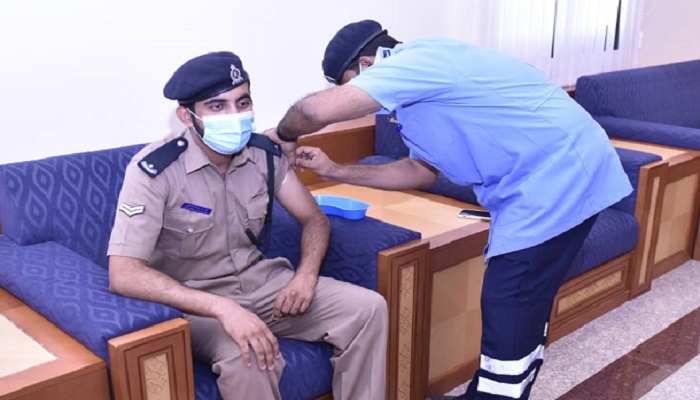

Muscat: COVID-19 infection rates have more than tripled over the last 30 days, according to statistics published by the Ministry of Health.
There were 1,931 new cases of COVID-19 reported on Wednesday, June 9, 2021, which is 3.35 times higher than the 576 cases reported on May 11.
During this time frame, the number of new hospital admissions has also increased. On May 11, 83 new patients were admitted to hospitals. This steadily increased to 128 admissions on June 9.
Dr Faryal Al Lawati, a Senior Consultant in Infectious Diseases at the Royal Hospital, said she had witnessed an unprecedented increase in infection numbers during the current wave, when compared to previous ones.
“The indicators of this wave are very worrisome, and this recent spike in numbers is because of gatherings that took place during Eid,” she said, speaking to Shabiba FM, the radio station of Al Shabiba, the Arabic publication of the Times of Oman.
“Patients admitted to ICUs might have other contributing factors, but during this wave, the number of infections have increased because the virus has become more resilient.
“The recent lifting of economic restrictions might increase case numbers further,” added Al Lawati, who is also the Head of the Infectious Diseases Department at Royal Hospital.
“There is also a section of society who are not compliant with wearing masks, because they believe taking the vaccine will keep them safe. After being vaccinated, however, you require at least three months for it to take effect.”
“Unfortunately, the number of people coming forward to be vaccinated in some governorates is low,” she said.
“The public should get themselves vaccinated as soon as possible, if they are among the target groups.”
It is worth noting that between the fourth and ninth of June of this year, more than 100 patients have been admitted to hospitals daily with issues concerning COVID-19.
The highest single-day admission number during the above time frame was on 5 June, when 140 patients were taken to hospital.
Over the last 30 days, there has also been an increase in the number of patients admitted to intensive care units. There were 255 people in intensive care units on May 11, compared to 329 on June 9.
The number of patients in ICUs crossed the 300-mark on June 8, when 303 patients were registered as being in intensive care.
The total number of people in hospital have also risen significantly, from 729 people on May 11, to 1,021 on June 9.
The recovery rate during this time frame has also dipped slightly: as of 9 June, 206,844 COVID patients out of a total of 228,579 have recovered from the disease, reflecting a recovery rate of 90.4 per cent.
This is a bit lower than the rate of 91.4 per cent seen on May 11, when the total number of recovered patients stood at 186,391, out of a total of 202,713 reported cases of the disease in the country.
COVID-19 vaccines continued to be issued to people across the country. Government officials in Wilayat Izki were given their first shots on the ninth, said the Directorate General of Health Services for that governorate.
“Also, for the fourth day in a row, the immunisation centre in Wilayat Nizwa continues to witness a turnout from employees in government institutions,” added the health body.
Efforts to get more people vaccinated are taking place across the country: in South Sharqiyah, for example, a mobile vaccination team is going to government offices to vaccinate workers and help bring down case numbers.
In the southern Dhofar region, hospitals continue to “provide vaccinations against the coronavirus to people eligible for the second dose,” said the DG of Health Services.
The Ministry of Health continues to remind people to adopt the precautionary measures to stop the spread of COVID-19 in the country.
These include avoiding group activities and gatherings, wearing a mask, maintaining social distancing, regularly and thoroughly washing hands with soap and sanitisers, avoid touching one’s face, mouth, nose, and eyes, following healthy habits while sneezing or coughing, and committing to isolation if you have symptoms of COVID-19, or have come into contact with those who have the disease.
“With our commitment to wearing a mask and maintaining social and physical distancing, we will prevent ourselves, our families, and our community from the spread of the coronavirus,” said the ministry in its advisory.